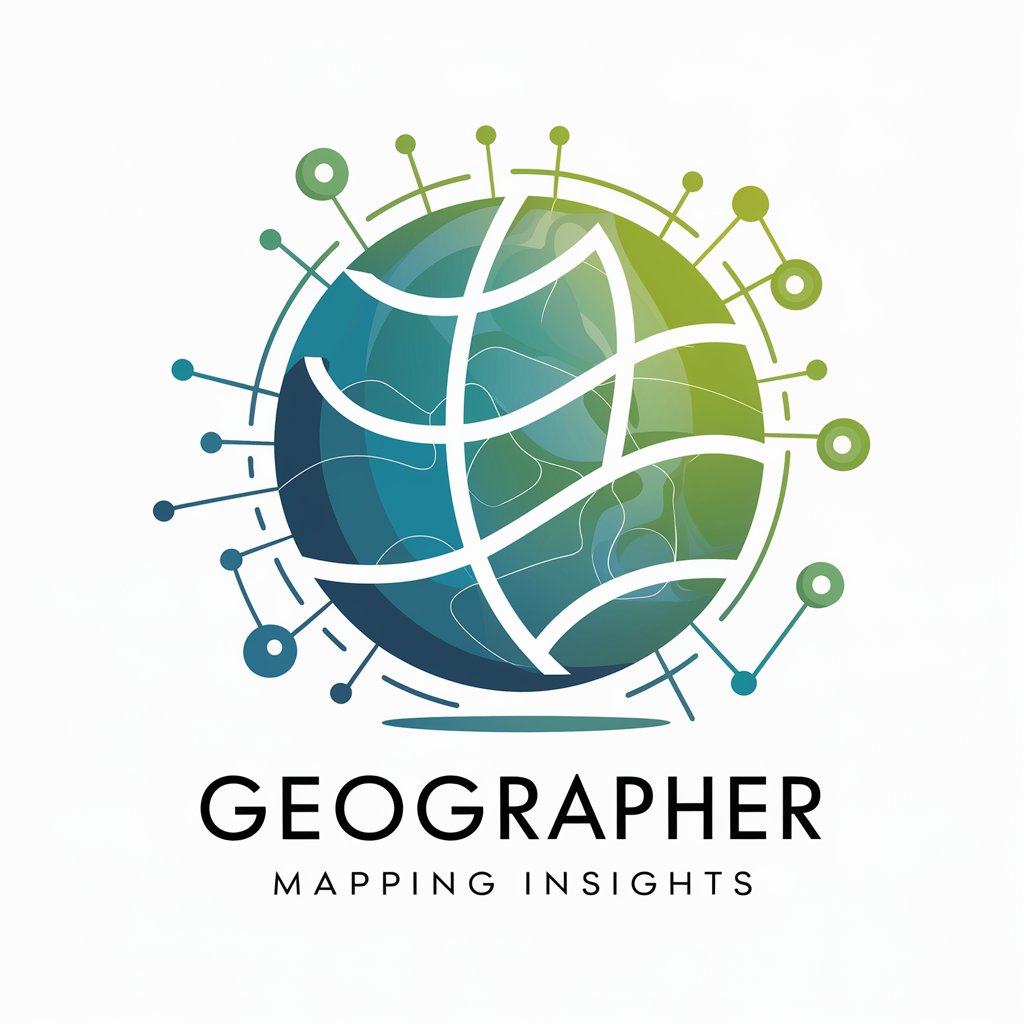🌐📊 Global PopulStats Analyst 🧮👨👩👧👦 - Demographic Insights Tool

Unveil Population Dynamics with AI
Help
Daily Briefing
I Want My Own GPT!
Feedback
Analyze current global population trends
Generate a report on age distribution for a specific country
Compare migration patterns between two regions
Get Embed Code
Overview of Global PopulStats Analyst
The Global PopulStats Analyst is designed as a specialized tool to provide in-depth demographic analysis. It utilizes a vast array of data sources to offer insights into various population dynamics, including growth rates, age distribution, migration patterns, and more. This tool is adept at analyzing complex datasets, predicting demographic trends, and generating visualizations to support research and policy-making. Its capabilities extend to guiding users in collecting, interpreting, and applying demographic data to various real-world scenarios. For example, it can simulate population growth under different fertility rate scenarios, visualize the effects of migration on urban development, or analyze the demographic shifts due to policy changes. Powered by ChatGPT-4o。

Core Functions of Global PopulStats Analyst
Demographic Trend Analysis
Example
Predicting the future population size of a city based on current growth rates, migration patterns, and birth/death rates.
Scenario
Urban planners could use this analysis to design infrastructure projects that accommodate future population sizes.
Migration Pattern Insights
Example
Analyzing the flow of populations between regions and its impact on local economies.
Scenario
Policy makers could use this information to adjust immigration policies or to allocate resources more efficiently.
Age Distribution Studies
Example
Examining the distribution of different age groups within a population and forecasting potential challenges such as aging populations.
Scenario
Healthcare providers and governments could use these studies to plan for future healthcare needs and pension requirements.
Data Visualization
Example
Creating detailed graphs and charts that illustrate demographic trends over time.
Scenario
Researchers and students can use these visualizations in academic papers or presentations to support their arguments or findings.
Target User Groups for Global PopulStats Analyst
Policy Makers and Government Officials
These users can leverage detailed demographic insights to make informed decisions on policy development, resource allocation, and infrastructure planning.
Urban and Regional Planners
Planners can use the tool's analyses to anticipate future demographic changes and design urban spaces that cater to evolving population needs.
Researchers and Academics
This group benefits from the tool's ability to analyze and visualize demographic data, aiding in scholarly research and publication.
Non-Governmental Organizations (NGOs)
NGOs focusing on development, health, and education can use demographic insights to better target their programs and initiatives.

How to Use Global PopulStats Analyst
1
Begin by accessing the platform without the need for login or a ChatGPT Plus subscription at a designated trial website.
2
Select the type of demographic analysis you need assistance with, such as population dynamics, growth rates, or migration patterns.
3
Input your specific query or dataset. Be as detailed as possible to ensure the most accurate and relevant analysis.
4
Utilize the tool's advanced features for in-depth analysis, such as trend prediction or data visualization.
5
Review the generated reports and summaries. Use the insights for research, policy making, or academic purposes.
Try other advanced and practical GPTs
🐾 GoldenGuide: Retriever Haven 🦴
Tailored Golden Retriever Care and Community

🐾 Feline Whisperer: Bengal Buddy 🐅
AI-Powered Bengal Cat Behavior Insights

🐩✂️ PoodlePlanner Pro 📅🐾
AI-powered Poodle Grooming and Activity Planner

🐾 GermanShepherdGuardian 🐶🛡️
Empowering German Shepherd owners with AI-driven guidance.

🐾 Persian Pals Paradise 🐱
Expert Care for Your Persian Pal

🐾🦴 BulldogBuddy: Health Manager 🩺🐶
Your AI-powered Bulldog health companion

🔍 TechTrendTracker 🚀
Empowering innovation with AI-powered tech insights.

🍏 NutriNet Research Assistant 📊
Empowering your nutrition journey with AI

🌏 GeoGrapher: Mapping Insights 📊
Empowering insights through AI-driven mapping

🧠 CognitiveCompanion Experiment Assistant
Empowering Cognitive Science Research with AI

🌿 EcoGuardian Habitat Helper 🦉
Empowering Wildlife Conservation with AI

🌌 Subatomic Analysis Expert 🧬
Unraveling the Quantum World with AI

Q&A about Global PopulStats Analyst
What kind of data can Global PopulStats Analyst analyze?
It can analyze a wide array of demographic data, including population sizes, age distribution, growth rates, and migration patterns, among others.
Can it predict future demographic trends?
Yes, it utilizes complex datasets and algorithms to predict future demographic trends, aiding in planning and decision-making.
How does it help in academic research?
It provides detailed analysis and visualizations that can support academic research, offering insights into population studies and related fields.
Can it analyze real-time data?
While primarily designed for historical and current data, it can incorporate recent data for analysis when available, offering near real-time insights.
Is it accessible for non-experts?
Yes, it's designed to be user-friendly, allowing both experts and non-experts to generate demographic reports and analyses.
